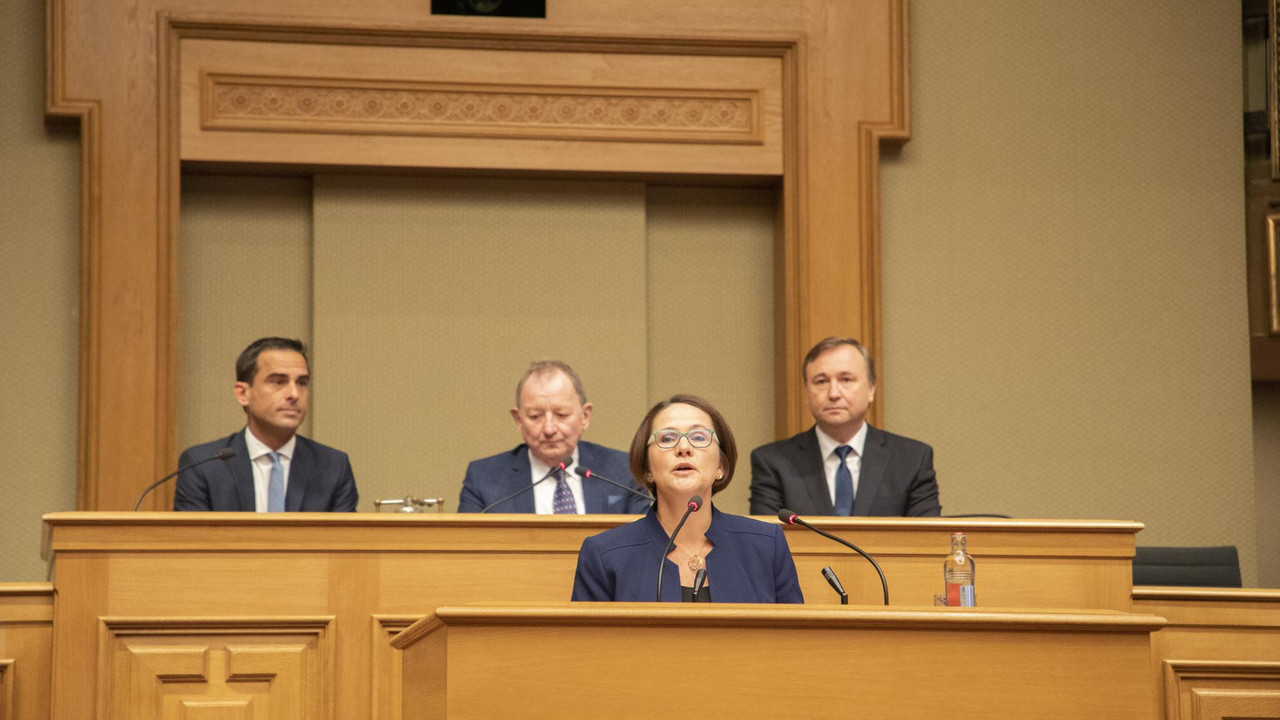Presented to the Chamber of Deputies on 12 October by Finance Minister , the 2023 budget will be discussed with the various political groups and economic observatories until mid-December. At the end of the debates, the budget law will be voted in plenary session. It will serve as the government's roadmap for the country's financial management next year.
€2.5bn
This is the amount of support mobilised by the state in 2022 within the framework of the energy measures and the two tripartite agreements, or 3.3% of Luxembourg's GDP. To this amount must be added €3bn paid during the pandemic. Backes recalled in her speech that “none of these amounts had been foreseen in any budget.”
€24.5bn
This is the amount of central government revenue planned for 2023. An ambitious budget, whose resources come mainly from direct taxes (48% and €11.8bn) and indirect taxes (38% and €9.3bn), while no tax increase is planned in 2023. For the opposition, this budget is generally considered too optimistic. (Pirates) said after the tabling on 12 October that it was a budget “seen through rose-coloured glasses,” (ADR) called the budget “irresponsible.” He added: “I think they're trying to give gifts before the elections, but this is not really the time.”
€2.8bn
The announced deficit in 2023 is €2.8bn, an increase of €1.6bn compared to last year. Public finances will therefore not be in balance as expenditure will be higher (€27.3bn) than revenue. As an indication, the capital expenditure of the central government has increased from €2.3bn in 2019 to €3.8bn in 2023.
47%
This is the volume of public administration spending on social benefits, subsidies, grants and social security transfers, the largest item of expenditure, amounting to approximately €12.8bn. The second largest item of expenditure is wages and salaries, which account for 23% and amount to approximately €6.3bn.
26.3%
This is the level of Luxembourg's in 2023, i.e., €21.8bn, in relation to GDP. This has increased by 1.7 percentage points compared to 2022, which was also a year of crisis. It is nevertheless interesting to compare this figure with that of 2019, a year without exceptional measures to be financed, when the debt was 22.4%. In 2023, excluding the covid measures (3.6%) and the energy crisis measures (3%), the public debt would be rather lower and would be at 19.7%. According to figures from the finance ministry's treasury, the public debt is expected to increase further over the next three years, reaching 29.5% in 2026. The government would then be at the extreme limit of the 30% GDP debt threshold it set itself in the 2018 coalition agreements.
€2,505
This is the new maximum amount of the single-parent tax credit (CIM) in 2023, for an income of up to €60,000 per year (compared to €35,000 up to now). This increase of €1,005 is one of the measures announced by the government to preserve and improve purchasing power. However, a number of observers were expecting a significant tax reform, particularly for this category of the population, as the tax table has not been adjusted since 2017. The minister of finance made it clear that this would not take place in 2023.
31 December
This is the deadline by which taxpayers will be able to send in their tax returns each year from the current tax year, 2022.
47 cents
In her presentation speech, the Minister of Finance stated that “for every euro spent by the State, around 47 cents will go to social measures.” In addition to some of the freebies already in place (extracurricular activities and music lessons), the energy price cap, the energy tax credit, the cost of living allowance and the energy bonus are among the latest measures in the social package taken by the government to help families in difficulty.
2
This is the number of times in a lifetime that each taxpayer (no taxpayer household or individual was specified) will be able to make use of the accelerated depreciation of a property. The aim of this measure is to fight against tax niches and to reduce the pressure on property. The text, which will have to be specified, indicates that this device limits depreciation “to 2 buildings or parts of buildings allocated to rental housing, acquired or constituted after 31 December 2022, throughout the period during which the taxpayer is liable to tax in Luxembourg.”
€600m
This is the additional budget allocated in 2023 for public investment by the state, which therefore increases to a total of €3.8bn. This includes rail infrastructure, schools, buildings, etc. In this budget, €1.2bn (+10%) will be allocated to purely climate and environmental investments. This budget has been increasing every year since 2020 (when it was €558m) and will reach €1.3bn in 2024.
This story was first published in French on . It has been translated and edited for Delano.
